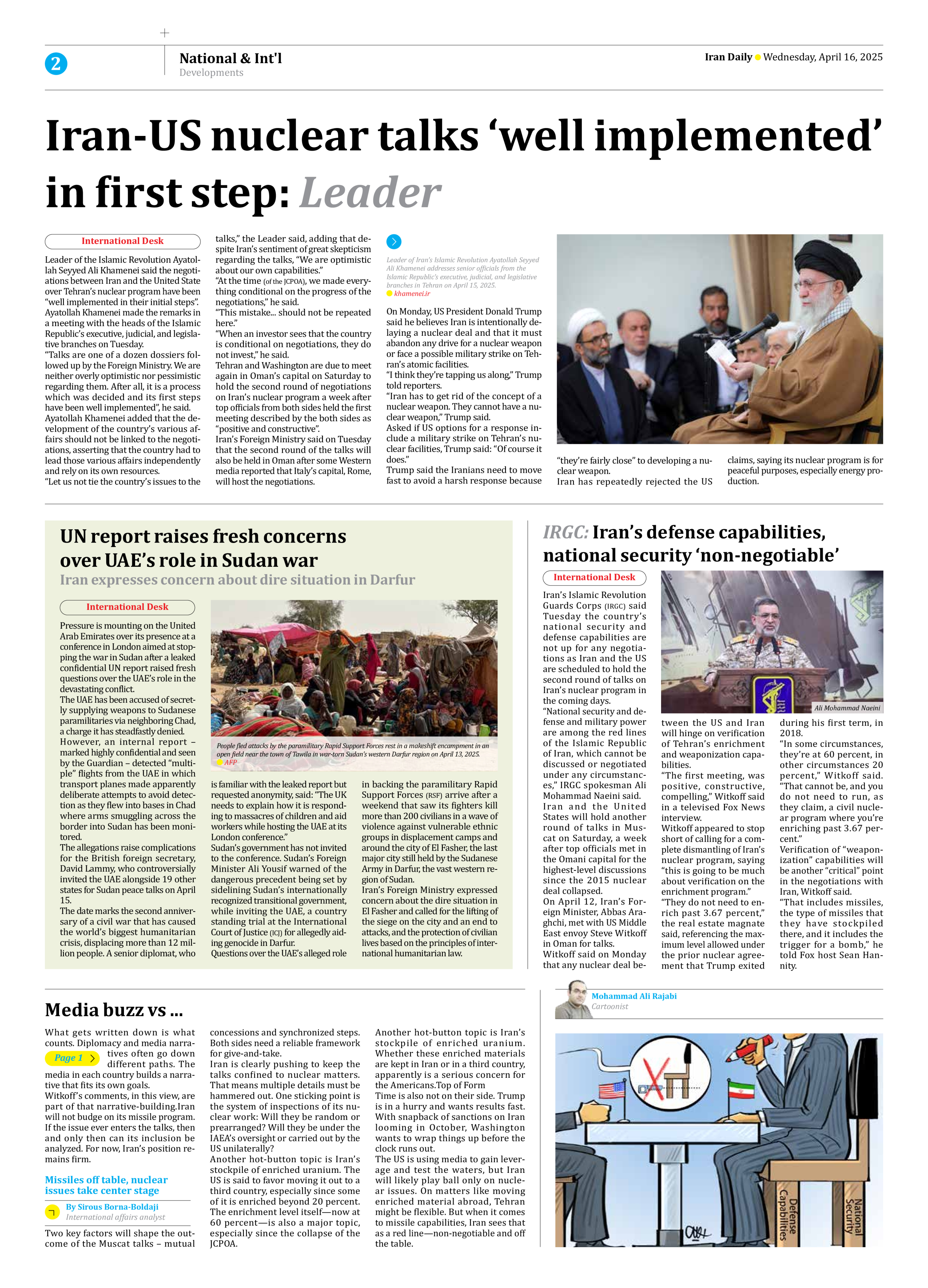
Media buzz vs ...
Page 1
What gets written down is what counts. Diplomacy and media narratives often go down different paths. The media in each country builds a narrative that fits its own goals.
Witkoff’s comments, in this view, are part of that narrative-building.Iran will not budge on its missile program. If the issue ever enters the talks, then and only then can its inclusion be analyzed. For now, Iran’s position remains firm.
Missiles off table, nuclear issues take center stage
Two key factors will shape the outcome of the Muscat talks – mutual concessions and synchronized steps. Both sides need a reliable framework for give-and-take.
Iran is clearly pushing to keep the talks confined to nuclear matters. That means multiple details must be hammered out. One sticking point is the system of inspections of its nuclear work: Will they be random or prearranged? Will they be under the IAEA’s oversight or carried out by the US unilaterally?
Another hot-button topic is Iran’s stockpile of enriched uranium. The US is said to favor moving it out to a third country, especially since some of it is enriched beyond 20 percent. The enrichment level itself—now at 60 percent—is also a major topic, especially since the collapse of the JCPOA.
Another hot-button topic is Iran’s stockpile of enriched uranium. Whether these enriched materials are kept in Iran or in a third country, apparently is a serious concern for the Americans.Top of Form
Time is also not on their side. Trump is in a hurry and wants results fast. With snapback of sanctions on Iran looming in October, Washington wants to wrap things up before the clock runs out.
The US is using media to gain leverage and test the waters, but Iran will likely play ball only on nuclear issues. On matters like moving enriched material abroad, Tehran might be flexible. But when it comes to missile capabilities, Iran sees that as a red line—non-negotiable and off the table.
By Sirous Borna-Boldaji
International affairs analyst







